
WHAT’S NEW? This year’s standouts include vibrant new color choices and double-flowering varieties of old favorites, as well as interesting foliage variations and compact plant sizes. Don’t forget to check out our drawing for some of these new varieties below. Now let’s take a look at a few of our favorites.
Eclipse® bigleaf hydrangea
Hydrangea macrophylla You can’t miss the stunning deep purple, almost black, leaves of this new bigleaf hydrangea. We liked how well Eclipse held onto its dark color all summer in sun and part shade.
Raspberry pink blooms show up in summer and repeat until frost, fading to green and then brown papery flower heads you can leave standing for winter interest. This beautiful shrub is great as a focal point. Or grow several together to create a hedge with three-season drama.
Shrub Best features: Raspberry pink blooms on deep purple foliage Light: Full sun to part shade Soil: Well drained Size: 3 to 5 ft. tall and wide Cold hardy: USDA zones 5 to 9 Introducer: Bailey® Nurseries Source: Sooner Plant Farm, soonerplantfarm.com, 918-453-0771
1 Cappuccino calibrachoa
Calibrachoa hybrid This new color in the Calitastic® series was a favorite in our test garden last year — plants were covered in blooms all summer! Plus it didn’t get super leggy (as some varieties do) and kept a compact size for most of the season.
This story is from the Issue 175 - February 2024 edition of Garden Gate.
Start your 7-day Magzter GOLD free trial to access thousands of curated premium stories, and 9,000+ magazines and newspapers.
Already a subscriber ? Sign In
This story is from the Issue 175 - February 2024 edition of Garden Gate.
Start your 7-day Magzter GOLD free trial to access thousands of curated premium stories, and 9,000+ magazines and newspapers.
Already a subscriber? Sign In
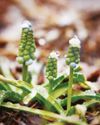
Backyard Tornado
\"HE WHO SEARCHES FOR SPRING WITH HIS KNEES IN THE MUD FINDS IT, IN ABUNDANCE.\" - ALDO LEOPOLD
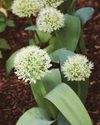
Front-of-the-Border "Wow!" Power
When it comes to easy-care plants that bring a lot of punch to the border, 'Ivory Queen' Turkestan onion should be near the top of your shopping list.
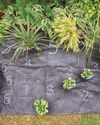
GARDEN ESSENTIALS
MAKE GARDENING EASIER THIS YEAR
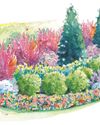
Elevate an Evergreen Hedge
Although an evergreen hedge looks suitable all year on its own, it's perfectly poised to become something even greater: a backdrop to a garden where flower after flower will unfurl with such drama, you just might find yourself stepping outside and offering your applause.

One Garden, Two Worlds
In this colorful and welcoming garden, sunny, flower-filled front borders transition to a shady backyard hideaway.

on edge
Four garden pros share their go-to edging techniques.
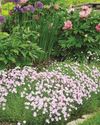
DIANTHUS
Add fragrance, vivid color and timeless charm with this reliable, cold-hardy perennial.
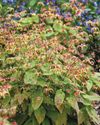
2025's Best New Plants!
Are you ready to start planning for next year's garden? A few new plants might be just what you need to bring those dreams to reality.
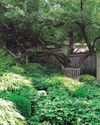
Solve Garden Problems With Ground Covers
Are you tired of coaxing turfgrass to grow in difficult spots? In her book Groundcover Revolution, Kathy Jentz says that ground covers can be the solution to these struggles.

The Romance of Spring
With the arrival of spring, emerging perennials fill the garden with soft texture, restoring life to the harsh, often barren landscape of winter.